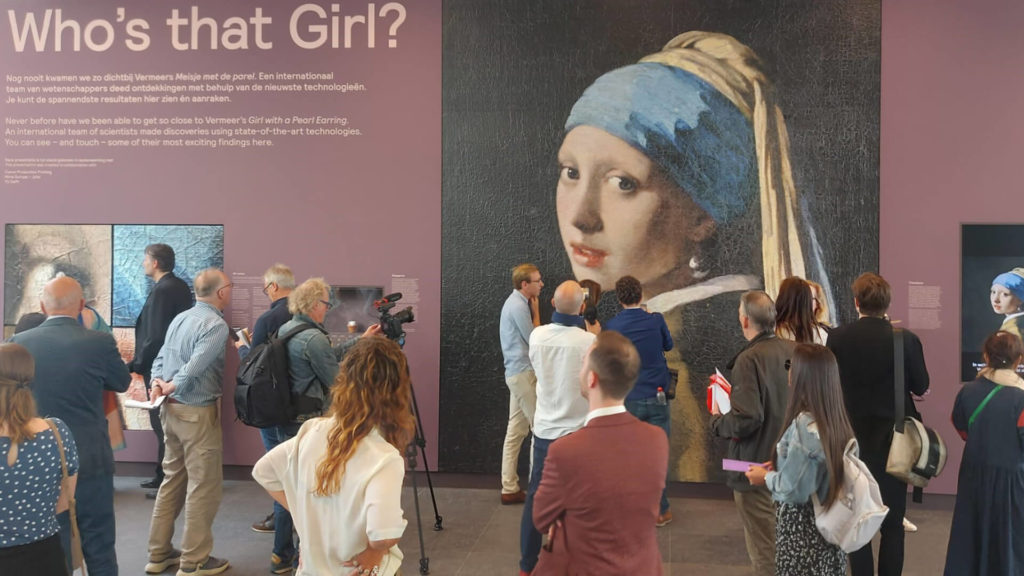The world-renowned Mauritshuis Museum in The Hague, the Netherlands, once again called upon Canon Production Printing to collaborate on a unique project. They wanted to dive into history and research what the famous Girl with a Pearl Earring painting looked like in 1665 when Johannes Vermeer created this masterpiece. Led by Mauritshuis restorer Abbie Vandivere and together with Technical University Delft and scanning expert Hirox Europe, Canon took on this challenge to find out ‘Who’s that girl?’.

When Johannes Vermeer first created the painting 358 years ago, the colors looked fresher than they do today. The years seemed to have aged the Girl a bit. Today, the painting has crackled due to natural temperature and air humidity changes, but she still looks beautiful.
To find out what the painting looked like when it was first created, the team of Hirox made a microscopic 3D scan of the painting, and the researchers of the Technical University of Delft created a digital visualization to show the changes over time.
Canon printed a mega-sized 4-metre-high elevated print of the painting as we know it today, depicted about 100 times larger. Visitors of the museum get the unique opportunity to touch and feel this world-famous Dutch masterpiece. Further enlarged details can be seen of some parts of the painting in 1 by 1 metre. For instance, the pearl earring and the left-eye show some of the individual pigment particles of Vermeer’s paint, the brush strokes and how the Girl was made.

To create this unique and biggest reproduction of Girl with a Pearl Earring, the largest elevated print of this kind in the world, we used our patented Elevated Printing Technology. This technology, which is also used in our PRISMAelevate XL software, enabled us to print the unique enlargement on our Arizona flatbed printer, using UV ink to build layer-on-layer.
The result is on display in the foyer of the Mauritshuis Museum in The Hague, the Netherlands, and is freely accessible for all visitors to enjoy until 7 January 2024.
Find out more here.






